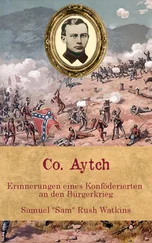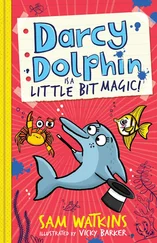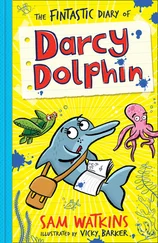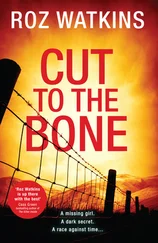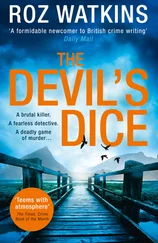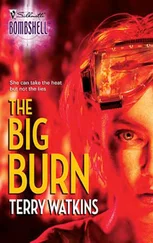He waits. The night pulls on. He reaches around the bar for the tap and refills his own glass when he needs it. Men come and go around him, but each time the bell reverberates through the building it’s the old woman who opens the door for them. He waits for Darla, but she never comes. When he asks about her, none of the girls will answer him. His head is hot and clouded and his cab isn’t coming until morning. He doesn’t know what else to do. He walks outside through the dust and gravel to Darla’s fifth wheel and knocks on the door and then the windows. The lights are off but through the blinds he can see the paper-lined drawers of her dresser pulled half-open and empty, and the bed where he last saw her, stripped bare. He looks in the other trailers. He calls for her. There is no answer.
Somewhere in the night Amy comes and pours more shots. She lines them up on the bar like tiny monuments. They drink them together, one after another. “Where is she?” he says finally, a stinging in his voice.
She pours them another round. “Here.”
“Tell me.”
“I don’t know,” she says. “She was just gone. I swear.”
Near dawn, Manny appears from the darkness of the hallway and puts his hands on Michele’s shoulders. “Walk with me, honey.”
As he follows Manny out the back door, beyond the lights and sounds of the compound and into the desert, Michele looks to the sky. So this is what Renzo looked upon as he died, naked and faceup in the dirt: the wide brightening sky, the fading stars, the waning moon white like a jaw on the horizon. A peacock caws. A part of him—the part that speaks in a ghost’s voice—knows he’ll never see Darla again.
• • •
The peacock coop is shaded from the pink-purple of dawn by palm leaves and canvas overhead. The air is thick with the scents of seed and dust and bird.
The boy hesitates before coming inside. “These are, ah, your pets?”
“Not mine, my boss’s. I hear you’re headed out of town. You’re leaving.”
“Yes, I go back to Italy.”
“And you think you’re taking Darla with you.”
“She, ah, would like to leave. She has told me.” A bird rustles in its nest. “I, ah, like Darla.”
“I liked her, too,” says Manny.
“I love her.”
“Honey, I know. But she didn’t love you, okay?”
“She does,” he says, though he says it like a question.
“American girls, you don’t know how they are. All they care about is money, okay? Especially these girls. Don’t you know? It’s all business. Even with Darla.”
“Where is she?”
Manny combs his fingers through a trough of seeds, letting the breeze winnow away the empty shells. “Don’t worry about it.”
“Tell me where is she.”
“This is a business, kid. She had somewhere else to be.” There is a stillness pulled tight between them. Outside, dawn lightens the landscape but the last dregs of night linger in the coop. “They found your friend, didn’t they?”
Michele picks at the chicken wire. “Yes.” Then quickly, “No. They said he is dead. They stopped looking.”
He turns away and hooks his fingers through the chicken wire. His broad shoulders start to tremble. He begins to shake the entire wall of the coop back and forth, harder and harder, until Manny fears he might snap the old two-by-fours. The birds, startled from their roosts, squawk and dart around, frenzied, among them the bright albino flash of White Pine. All the while Michele wails, a feral, guttural sound.
“Fuck, kid,” says Manny, too quiet to be heard. “Come on.” He pulls Michele back and turns the boy to face him. Michele’s face is wet and slick where he’s bloodied his nose against the fence. Manny embraces him. The boy writhes at first, then goes limp and lets his head fall to Manny’s shoulder. He is sobbing.
“My boss, Jim,” Manny says, maybe just to have something to say. “The one who owns these birds? He’s dying, too. Half the time he doesn’t even know who I am. You think it’s not going to happen, and then. But these girls—”
“I, ah, have to take her,” Michele says, shrugging him off. “I love her.”
Manny takes Michele by his shoulders and turns him gently to face the yellow lights of the ranch in the distance. “Kid,” he says softly. “Look. There’s no love in there. Trust me.”
Manny lets his arms wrap around the boy’s waist and presses him close again, from behind. For a moment—just a moment—the birds are still and Manny feels warmth against him.
Michele wrenches away, shaking his head. “No—”
“She never cared about you,” says Manny, hot with want, walking toward the kid. Burning. Michele shoves him back, hard. The peacocks are screeching now, and flapping, but there’s nowhere for them to go. Manny comes at him still. “She didn’t. You’re a kid.” The boy tries to leave, groping drunk for the gate in the half-light. “A stupid, sad, foreign kid with a dead friend and too much money. That’s all you are, understand? I did you a favor.”
Later, Manny will say it happened quick—the swing so fast it was a blur, the boy all sweet inertia, a dervish, and the rake’s prongs just a flash. Then he left, waited for his cab on the side of the road and never came back. But in truth Manny sees everything slow. The boy’s arched back. The contours of his ribs through his T-shirt. The blood around his nose and mouth already maroon with coagulate. His triceps made taut by the weight of the tool. The swing misses Manny so wildly that he doesn’t even move his feet. Michele wrenches the rake’s metal teeth into White Pine’s chest.
For an instant the air is filled with the report of the sternum snapping. Michele’s never seen a bird like this. The snowy feathers redden as blood wells up around the prongs. He feels the give of the meat as he plies the rake from the bird’s breast. Its beak opens and closes, leaking the tight sorrowful cry of a baby, a cry that will come to mean America.
It begins with a man and a woman. They are young, but not so young as they would like. They fall in love. They marry. They have a child. They buy an adobe house in a small town where all the houses are adobe. The McDonald’s is adobe. The young man is named Carter. Carter often points to the adobe McDonald’s as proof of what a good decision they made in moving away from the city. The woman, Marin, is also glad they’ve moved here, but she misses her friends, and the constant sound of city traffic whispering like the sea. She feels this little town tries too hard.
As soon as Carter and Marin learn they’ve conceived the child, they begin to argue about it. What will they feed it, what will they teach it, what of this world will they allow it to see? They fight about these things before the child is more than a wafer of cells. Before the child is anything, it is a catalyst for fights.
All the fights are the same fight: Carter wants to be sure Marin will change for their child. She has irresponsible habits. She eats poorly. She never exercises. She is terrible with money. She smokes and watches too much TV and gets bored easily and antagonizes people at parties.
Carter used to be fine with her habits. They were the things he once loved about her. Marin points this out, many times. She asks who it is he thinks he married. A child changes things, he says. A child is sacrifice. This is inarguable, and eventually she gives up arguing it. Each day he has a new stream of questions about what kind of mother she will be.
Does she plan on using disposable diapers?
Of course not.
Will she allow the child to watch television?
Only in small amounts. No. No. Not at all.
Читать дальше



